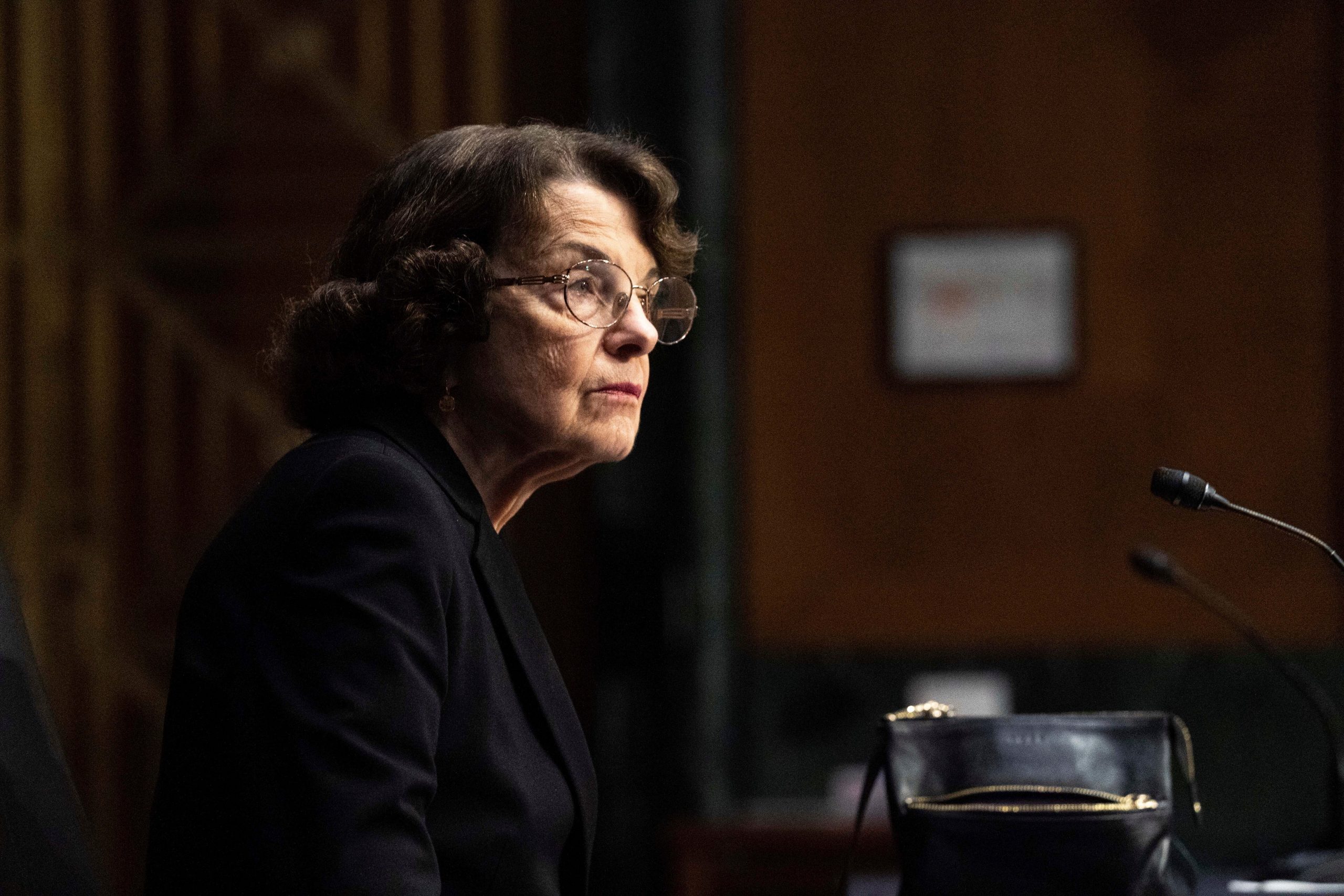
Anna Moneymaker/The New York Times via AP, Pool
- Dianne Feinstein said that she would be "open" to possible changes with the legislative filibuster.
- The position is stark turnaround for the longtime Senate institutionalist.
- Feinstein said that she is concerned about Republican 'abuse' of the procedural tool.
- See more stories on Insider's business page.
Sen. Dianne Feinstein of California on Friday said that she would be "open" to possible changes with the legislative filibuster, a departure from the longtime senator's institutionalist leanings.
Feinstein, who was first elected to the Senate in 1992, has been leery of dramatically altering the procedural tool, instead pushing for bipartisan consensus on issues like gun control and the reauthorization of the Violence Against Women Act.
However, she said that if Senate Republicans "abuse the filibuster," her position might shift.
"Ideally the Senate can reach bipartisan agreement on those issues, as well as on a voting rights bill," she said in a statement. "But if that proves impossible and Republicans continue to abuse the filibuster by requiring cloture votes, I'm open to changing the way the Senate filibuster rules are used."
Feinstein noted that President Joe Biden, who represented Delaware in the Senate for 36 years and has defended the Senate's deliberative processes, including the filibuster, has himself come out in favor of a "talking filibuster."
"I don't think that you have to eliminate the filibuster; you have to do it, what it used to be when I first got to the Senate back in the old days," Biden said in an ABC News interview earlier this week. "You had to stand up and command the floor, and you had to keep talking."
Feinstein said that Biden's idea was "worth discussing."
She added: "I don't want to turn away from Senate traditions, but I also don't believe one party should be able to prevent votes on important bills by abusing the filibuster."
While it isn't Biden's "preference" to end the filibuster, Senate Democrats are facing a raft of House-approved bills that include the sweeping voting reform bill known as H.R. 1 and the earliest elements of immigration reform, which are almost certain to be blocked by Senate Republicans.
The Senate is evenly split between 50 Democrats and 50 Republicans, with Democrats holding a majority due to Vice President Kamala Harris's tiebreaking vote.
However, the Senate has a 60-vote threshold to advance legislation, and with the Republican caucus dominated by conservative lawmakers and the party still smarting over former President Donald Trump's 2020 loss, legislative buy-in from the GOP on comprehensive bills will be difficult to come by.
Feinstein's statement comes after she recently expressed concern about Democrats nuking the filibuster and Republicans enacting far-reaching legislation on the opposite political spectrum if they were to regain a majority in the Senate.
"I would say I'm undecided," Feinstein told The Hill, adding that a GOP Senate majority "is a factor, one of the reasons why I'm hesitant."
While many Senate Democrats have mulled over eliminating the filibuster, Democratic Sens. Kyrsten Sinema of Arizona and Joe Manchin of West Virginia have committed to keeping the procedure in place.